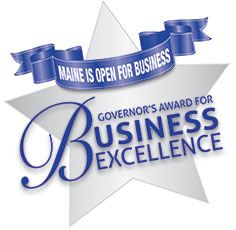Microsoft's Windows 10 made its debut in July 2015, six years after Windows 7. During this time, Microsoft’s new security, convenience, and performance developments culminated into Windows 10. Microsoft’s development continues, with the recent (August 2016) Anniversary Update to Windows 10 which delivers even more features. This is Microsoft’s operating system-as-a-service vision. Windows 10 delivers continual enhancements, cloud enablement, and new security. It is the future platform and begs the question, should my organization upgrade?
We are proud to announce that Systems Engineering (SE) was chosen to receive the 2016 Governor's Award for Business Excellence. This year, three Maine companies were honored at the 26th annual awards ceremony at an afternoon reception at the Blaine House on Tuesday, December 20th. SE is among a small group of employee-owned companies to receive this prestigious honor since its inception in 1991.
Many organizations include the review of Service Organization Controls (SOC) examination reports in their annual vendor due diligence activities; however, most are unsure of what they should be looking for in the report. Determining what is relevant and knowing how to read a SOC examination report can help to ensure that organizations get the most value and assurance out of their review.
By now, it’s not a well-kept secret that IT security is an important consideration in the design and operation of an organization’s network. A lot of things can be centrally managed by your IT administrator, like maintaining current anti-virus software, delivering timely operating system security updates, and web content filtering.
The role of the Information Security Officer (ISO) varies based on the size and complexity of an organization. It may be a full or part-time position held by an employee having only ISO responsibilities or by an employee having other roles within the organization. A primary role of the ISO is to work with management to strengthen its information security program and to protect the organization’s information assets.
At Systems Engineering, employees are our number one resource. Our success depends on our dedicated and skilled staff who share our values and contribute to our vision. SE Spotlight provides a brief but revealing look at one of our valuable members.
Microsoft has once again added Systems Engineering (SE) to the FY17 Small Business (SMB) Managed Partner List (MPL). According to Microsoft, SE has demonstrated a continued focus on cloud solutions and modernizing today's SMB business environments.












